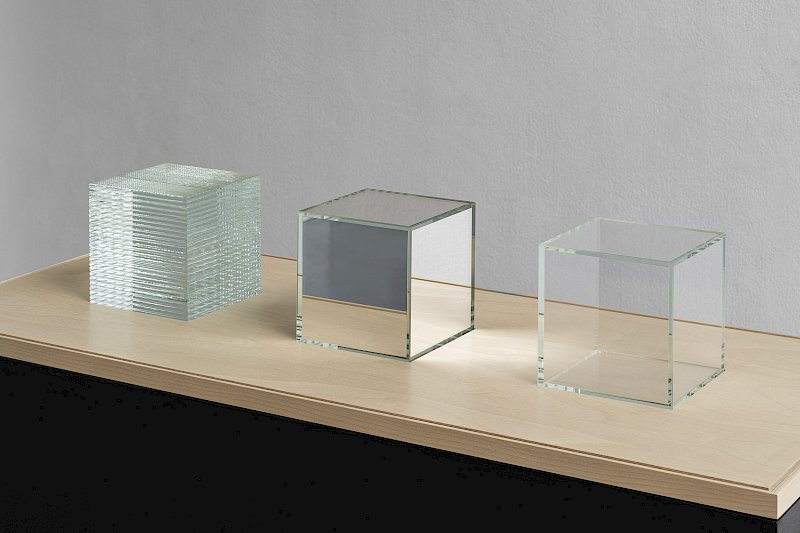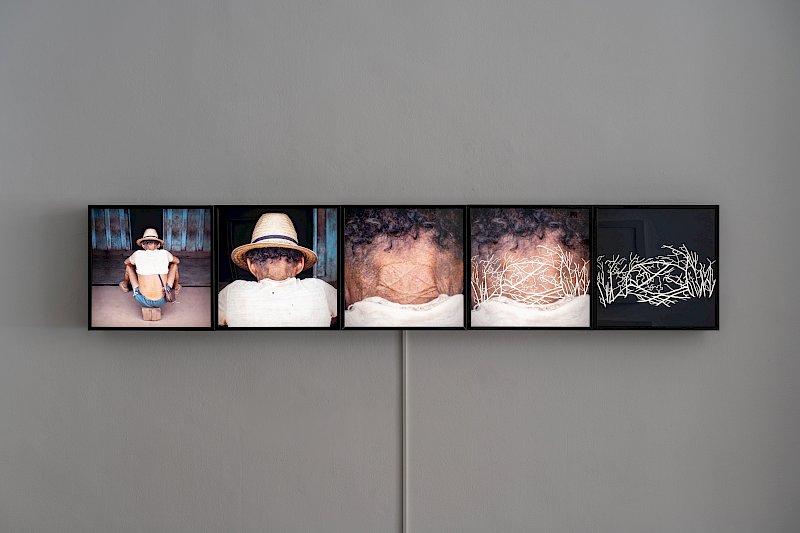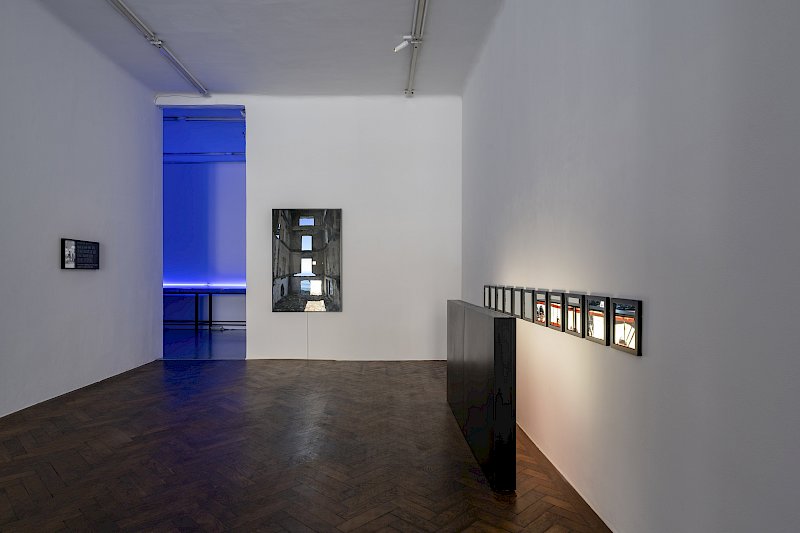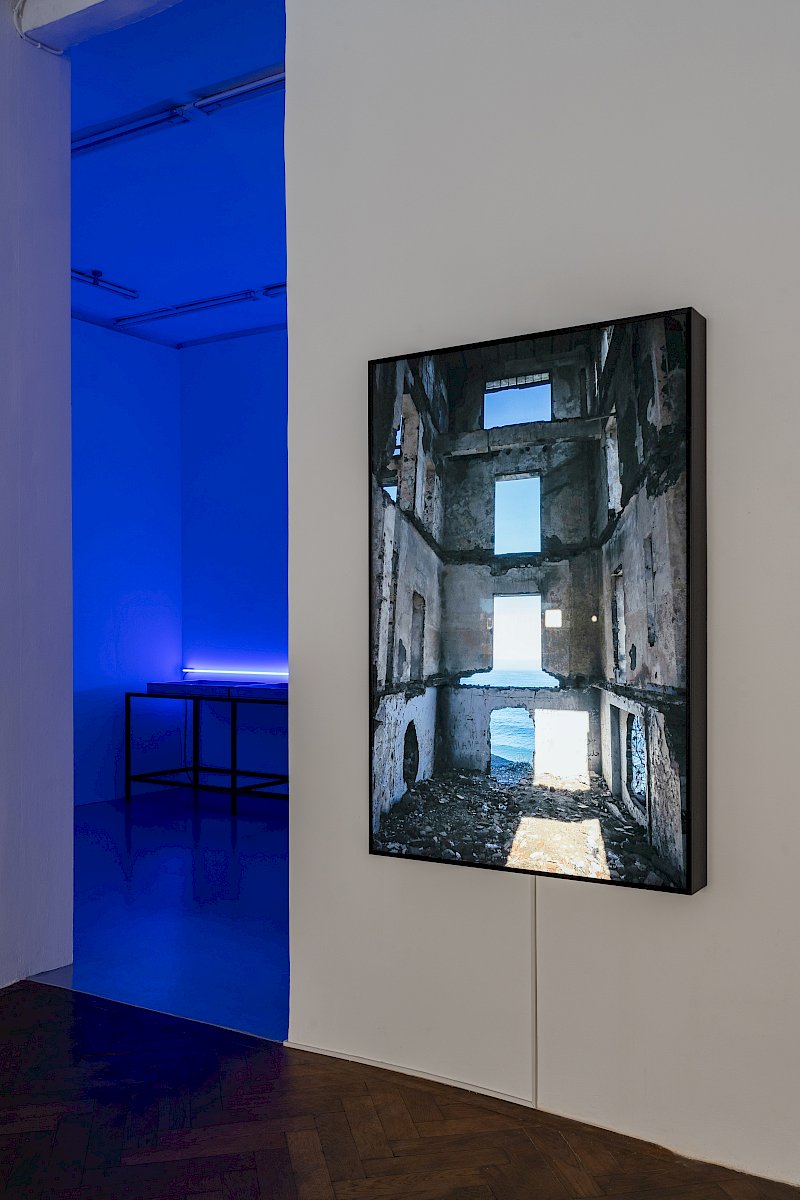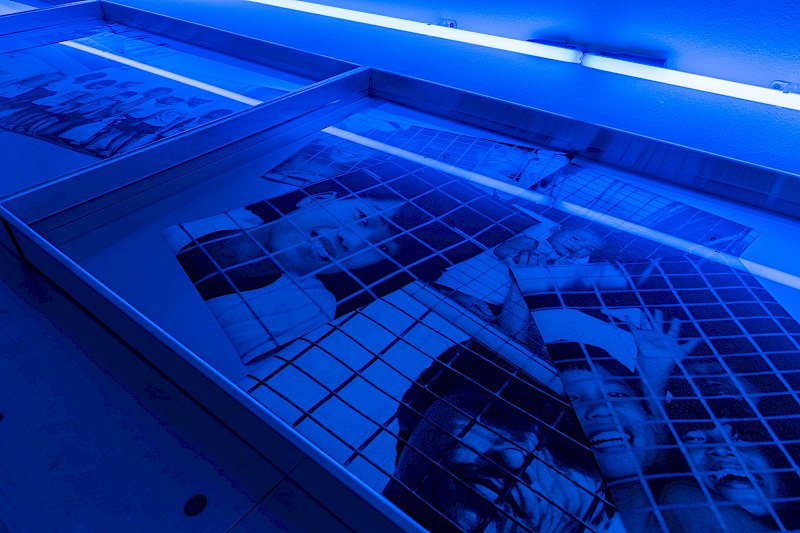Galerie Hubert Winter is pleased to present The Geometry of Solitude, Alfredo Jaar’s second solo exhibition with the gallery. The artist just received the IV Albert Camus Mediterranean Prize 2024. Previously, he was awarded the Hiroshima Art Prize in 2018 and the Hasselblad Award in 2020.
The show features an early body of work, which gravitates around a critical representation of the precarious situation of refugees around the world. Based in New York, Alfredo Jaar is celebrated for his poignant works investigating aesthetics and ethics of images, raising awareness about sociopolitical issues that have been overlooked, marginalized, or neglected. Focusing on the politics of images, his practice revolves around what he terms ‘exercises in representation,’ employing diverse conceptual and visual strategies to convey events and disrupt indifference where traditional forms fall short.
Geometries evoke points (of view), lines, distances and invariances, it is precisely these parameters Alfredo Jaar attempts to change in order to challenge the hegemonic structure of the visible. Thus, placing the viewer in perspectives that make the reciprocity of the individual and history tangible. In works like People without Names (Afghanistan) and People without Names (Sudan) (both 1989), lightboxes and mirrors create fragmented images that change with the viewer's position, merging their reflection with those depicted. This interplay opens a reflective horizon, creating choreographies of gaze that enable encounters beyond merely addressing images or their referents. This dramaturgy of space, photographic image, (occasionally) words as well as perspective aims to inflict new ‘distributions of the sensible’ to quote Jacques Rancière.
Central to The Geometry of Solitude is Fading (1991), an installation of steel tables and anodized metal trays holding color Cibachrome photographs floating in water, accompanied by a blue neon-ribbon along the wall. This work documents the plight of Vietnamese exiles, known as ‘boat people,’ who sought refuge in British Hong Kong from the late 1970s to the early 1990s after the Vietnam War. Criminalized and detained in camps like the Whitehead Detention Center, their struggles were captured by Alfredo Jaar during his 1989 visit to Hong Kong, where he interviewed families in the camps and those still making the perilous journey across the South China Sea. The ongoing relevance of this work reflects the persistent issue of refugee status for Vietnamese exiles and displaced people worldwide and comments on the fading of history, the same way these images freely float and fade away in those vessels.
The history of the second half of the 20th century until today is one of continuous violent displacements, Alfredo Jaar—once himself fleeing the oppressions of the Chilean Pinochet regime—witnessed these tragedies, from Hong Kong, to Rwanda—see Waiting (1994) and Walking (1994)—to today’s ongoing crisis in the Mediterranean as negotiated in Searching for Spain (2012). The photograph depicts the ocean from an abandoned palace in Algiers, now a hiding place for immigrants preparing to cross the Mediterranean toward Spain. You and Me and the Others (2020) implements a play with reflection, transparency and refraction and creates a complex minimalist self-portrait of the artist, which remains open to anyone to identify with, thus being an example of Alfredo Jaar’s poetic ways of abstraction and introduction of emotional meaning into minimalist forms.
The neon I Can’t Go On. I’ll Go On (2018) frames the exhibition—welcoming visitors and bidding farewell with an imperative: Antonio Gramsci’s famous dictum of ‘the pessimism of the intellect and the optimism of the will.’ It encapsulates Alfredo Jaar's own attitude and represents at the same time probably the only guidance to navigate the sociopolitical turmoil and ferociousness of our time.
Lecture Announcement: Alfredo Jaar, "It Is Difficult", Academy of Fine Arts Vienna, June 11, 2024, 6pm.
PRESSE
EIKON, #127, September 2024: Interview with Alfredo Jaar by Walter Seidl
OE1 Kulturjournal, July 12, 2024
MOUSSE, July 8, 2024: Alfredo Jaar “The Geometry of Solitude” at Galerie Hubert Winter, Vienna
artmagazine, July 1, 2024: Alfredo Jaar – The Geometry of Solitude: Immer weiter… by Werner Remm


